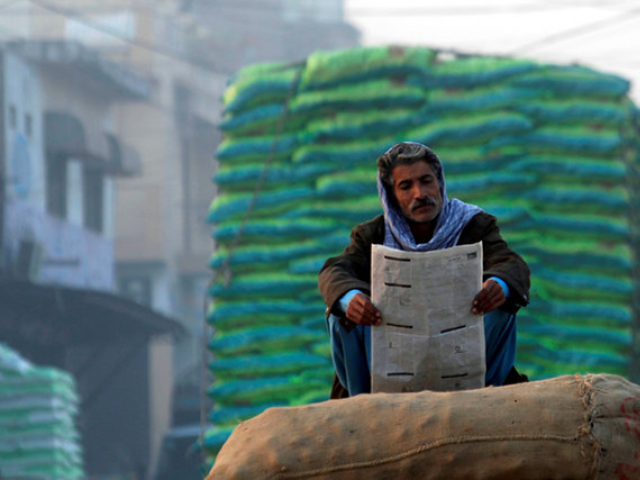Talking news — and beyond
Not only are we grappling with what is news and what is not but also what platform to deliver it on and how

PHOTO: REUTERS
A number of practitioners from the region converged to answer this question. They explained how the world is changing in terms of the news media and how we must change with it to stay on top of our game. How the media landscape is evolving and Facebook and Google are becoming major news providers at a time when professional journalists are losing control of how content is generated.
Fake news featured prominently in the discussions and this of course brought out talk of the Trump administration and its role in news management. Possibly the highlight of the conference was a discussion featuring Michelle Giuda, Assistant Secretary of State for Public Affairs, a recent Trump appointee to the post.
In her talk, Giuda maintained that the United States remains committed to press freedom. “Our goal in the US is to help defend that right — open and free press, freedom of speech — and to help advance our values and help our partners in other countries do the same thing”, she insisted. Moderator Donna Leinwand Leger, former managing editor of the USA Today, pointed out that Trump often denounces coverage he doesn’t like as fake news, “which is not the kind of message you are bringing here.”
To applause from the audience, Leger said: “It contradicts it. It undermines the media. And it is a tactic that has been used in this region to squelch the press. How does the State Department continue to bring its message when the President is setting a bit of a poor example?”
The fact that this debate can happen is one of the most powerful things about the US, countered Ms Giuda, who for close to 20 minutes fended off questions on Mr Trump’s treatment of the media and its repercussions on press freedom and trust in the media.
Trump has been very clear in calling out unfair or inaccurate news when he sees it, as is his right to do. As is the right of every single US citizen, she said.
Journalists rose to point out that the US President and government are a source of disinformation, and they fear other leaders would be empowered to deride the press as well. The Bill of Rights protects the rights to freedom of speech and the press, Ms Giuda replied, to which Ms Leger wondered whether this debate was a fair one, drawing a swift response from Ms Giuda, who said people were free to post what they wanted on social media — especially in the US — because of freedom of speech.
These words echoed in my mind when an American journalist friend of mine told me that ahead of returning home, he would delete his Twitter account so that immigration officials do not find content critical of the Trump administration. How the world has changed.
A feather in the cap of our Centre for Excellence in Journalism at the Institute of Business Administration, was that we organised a dialogue for South Asian journalists at the conference. An honour for Pakistan.
Two presentations that stood out were a presentation by Caitlyn Chen of an organisation called Tencent. As she spoke, thanks to artificial intelligence her words were being transcribed on the screen automatically from both English and Chinese.
This is the beginning, said Chen, as at points the transcription became garbled. Once the bugs are sorted, reporters will have to look for new ways to generate content, she said. AIl will be automatically generating feed from events. Maybe it’s time to redefine roles. Another programme under development how the content will be edited for different mediums.
The social media editor of Xinhua, the official Chinese news agency, had an impressive presentation on how technology helps in reporting the news and how the organisation has managed to capture one of the largest audiences anywhere in the world.
The news — as we know it, is changing. Not only are we grappling with what is news and what is not but also what platform to deliver it on and how. If anything, thanks to the sessions on investigative journalism what came out was that good journalism will never go out of fashion. Let us hope it stays that way.
Published in The Express Tribune, July 9th, 2018.
Like Opinion & Editorial on Facebook, follow @ETOpEd on Twitter to receive all updates on all our daily pieces.
















COMMENTS
Comments are moderated and generally will be posted if they are on-topic and not abusive.
For more information, please see our Comments FAQ